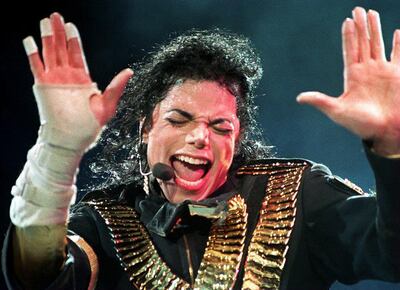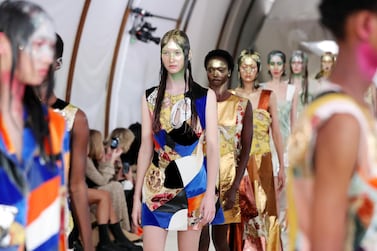In the age of #MeToo, many people find it difficult to enjoy art by controversial artists, from the songs of R Kelly and Michael Jackson to the films of Woody Allen and Louis CK's comedy. So we asked The National's feature writer and music expert Saeed Saeed and culture writer Razmig Bedirian to discuss their thoughts on the matter.
Saeed Saeed: Woody Allen once again made headlines recently for his controversial past. The lauded filmmaker's anticipated memoir has been dropped by publisher Hachette after sustained public pressure against its planned release. This campaign stems from a near three-decade-old allegation that Allen molested his ex-wife's adopted daughter, Dylan Farrow – a charge he continues to deny. Allen joins a growing list of problematic artists with a dedicated fan base. I think we need to start separating the art from the artist.
Razmig Bedirian: You know I used to be a fan of Allen's films like Manhattan and Midnight in Paris. But it's hard to watch any of them now. All I can think is: 'This guy married his stepdaughter'. As much as I'd like to separate the art from the artist, I don't know if that's possible. It's the same with Louis C K – I used to be a big fan of his show, Louie, as it brought something fresh to the table; a brand of comedy unlike any other. Now I can't bring myself to watch it. And if I did, I wouldn't be able to ignore that he's admitted to several incidents of sexual misconduct.
SS: While I don't condone any of the acts such artists commit, I can still enjoy what they do. What I find difficult is to simply dismiss a person's entire catalogue, particularly if it's enriching, because of something they did outside of that work. I can disagree with their life decisions, but I can always appreciate how their work inspired me.

RB: But the way I see it, if an artist pours him or herself into their work then why would we begin to separate them from it? I would love to set the artist and their actions apart from their work, particularly if I'm a fan. But can we really listen to R Kelly or Michael Jackson or read any of Ted Hughes's works without remembering what they did? Of course, it also depends on the severity and nature of the crime, doesn't it? Somehow, strangely, I can look past certain acts, such as neglect or even murder, in some cases. I can still read a William Burroughs book, even knowing that he killed his wife in a William Tell game gone wrong. But I can't read any of Hughes's poems without thinking of how abusive he was to Sylvia Plath. Strange, isn't it?
SS: I think it depends on how you approach it. Should an artist's life be an extension of their work? Or should it be limited to their craft? I believe it should be the latter. If not, no artist would be brave enough to create anything, or – at best – it will be something done to gain the approval of the public. This is what makes art special. It is a deeply personal process to be done without judgment. Whether people decide to purchase it or not, well, that's their choice. The fact it's out there is what counts.
RB: I agree, one of art's prerequisites is bravery, and part of that bravery relies on putting yourself out there and portraying yourself as authentically as you can. And there's always the possibility of public disapproval. So on one hand, yes, artists should not mind public opinion, or at least shouldn't let it interfere with their work. On the other hand, there's a danger of giving artists free rein, to let them get away with whatever just because they are artists. We should, I think, hold them accountable for certain things. They are, after all, role models. People look up to musicians, actors and artists. It's human to be flawed, but when artists infringe on others' freedom and use their stature to get away with certain things, then that's a problem.
SS: But does the art depend on an artist showing their true selves? Is that a requirement? If so, we wouldn't have escapist pop music. I think it is deeply problematic for an artist to become successful on the back of work they claim to be autobiographical, when in reality it is a lie. This is why I can listen to Jackson and appreciate it, as his troubled life rarely echoed in the ground-breaking pop music he put out.
RB: But then when we buy their art, particularly that of living artists, aren't we just supporting them? We're giving them our money.
SS: Well, that's up to each of us to decide whether we're willing to do that. The consumer should be able to decide for themselves if an artist's work is relevant to them.

RB: The thing is, being someone's true self is open to interpretation. Some people can express themselves while wearing a mask or becoming a fictional character more than they can in real life. Art is a gateway to self-expression. But, I essentially agree with you. In the case of a problematic artist and their art, it all depends on the nature of their art in contrast with what they did. Take Allen, for instance. It's hard watching any of his films with an eye for craft. The entire experience becomes an investigative practice, wondering how much is autobiographical or what is hidden beneath the surface. The experience of watching his films becomes something else.
SS: Funny, in that I always viewed Allen's films as witty and heartfelt. And l loved them for that. Films like Annie Hall and Interiors always hit that sweet spot between love and sadness that always made me reflect. Perhaps we aren't watching the same movies.






